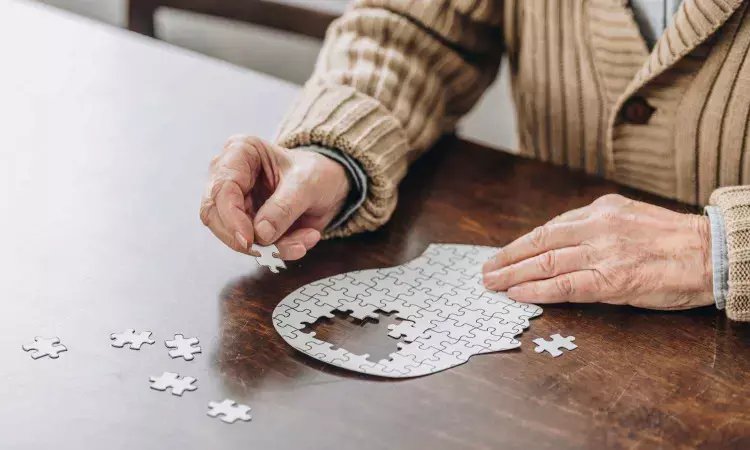- Home
- Medical news & Guidelines
- Anesthesiology
- Cardiology and CTVS
- Critical Care
- Dentistry
- Dermatology
- Diabetes and Endocrinology
- ENT
- Gastroenterology
- Medicine
- Nephrology
- Neurology
- Obstretics-Gynaecology
- Oncology
- Ophthalmology
- Orthopaedics
- Pediatrics-Neonatology
- Psychiatry
- Pulmonology
- Radiology
- Surgery
- Urology
- Laboratory Medicine
- Diet
- Nursing
- Paramedical
- Physiotherapy
- Health news
- Fact Check
- Bone Health Fact Check
- Brain Health Fact Check
- Cancer Related Fact Check
- Child Care Fact Check
- Dental and oral health fact check
- Diabetes and metabolic health fact check
- Diet and Nutrition Fact Check
- Eye and ENT Care Fact Check
- Fitness fact check
- Gut health fact check
- Heart health fact check
- Kidney health fact check
- Medical education fact check
- Men's health fact check
- Respiratory fact check
- Skin and hair care fact check
- Vaccine and Immunization fact check
- Women's health fact check
- AYUSH
- State News
- Andaman and Nicobar Islands
- Andhra Pradesh
- Arunachal Pradesh
- Assam
- Bihar
- Chandigarh
- Chattisgarh
- Dadra and Nagar Haveli
- Daman and Diu
- Delhi
- Goa
- Gujarat
- Haryana
- Himachal Pradesh
- Jammu & Kashmir
- Jharkhand
- Karnataka
- Kerala
- Ladakh
- Lakshadweep
- Madhya Pradesh
- Maharashtra
- Manipur
- Meghalaya
- Mizoram
- Nagaland
- Odisha
- Puducherry
- Punjab
- Rajasthan
- Sikkim
- Tamil Nadu
- Telangana
- Tripura
- Uttar Pradesh
- Uttrakhand
- West Bengal
- Medical Education
- Industry
Is increased sleepiness in 80s tied to higher dementia risk?

A study in Neurology, led by Yue Leng, PhD, and Sasha Milton, followed the sleep patterns of 733 older female participants to see if specific patterns of change were associated with a higher risk of dementia. The participants, whose average age was 83, were monitored by wrist devices that track movement and time spent asleep. They had normal cognition at the start of the study.
At the end of the study, five years later, 13% had developed dementia. This included 25 participants (8%) with stable sleep patterns, 39 (15%) with declining nighttime sleep patterns and 29 (19%) with increasing sleepiness. After adjusting for factors like age, education, diabetes and hypertension, those with increasing sleepiness had double the risk of the stable sleepers.
This study is one of the first to look at how sleep patterns change over time and relate to dementia risk. It adds to a body of recent UCSF-led research that shows poor sleep quality in midlife, delayed dream phase and extended napping are linked to a higher risk of dementia.
It is unknown if worsening sleep increases the risk of dementia or if dementia leads to worsening sleep. Some scientists believe both theories may be correct.
Reference:
Sasha Milton, Clémence Cavaillès Five-Year Changes in 24-Hour Sleep-Wake Activity and Dementia Risk in Oldest Old Women, https://doi.org/10.1212/WNL.0000000000213403
Dr Kamal Kant Kohli-MBBS, DTCD- a chest specialist with more than 30 years of practice and a flair for writing clinical articles, Dr Kamal Kant Kohli joined Medical Dialogues as a Chief Editor of Medical News. Besides writing articles, as an editor, he proofreads and verifies all the medical content published on Medical Dialogues including those coming from journals, studies,medical conferences,guidelines etc. Email: drkohli@medicaldialogues.in. Contact no. 011-43720751


